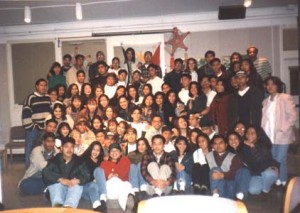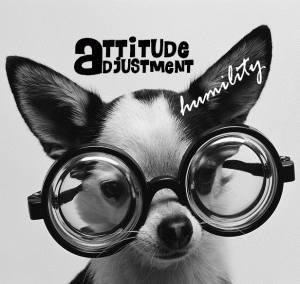 I will be attending a training session today to prepare for my role as a Transitions Course facilitator for STEP (Summer Transitional Enrichment Program), a summer bridge program for incoming first generation and under-represented students at UC Santa Barbara. I feel really privileged to be invited back for my second year as a facilitator. I attended STEP in 1991 as a student and I was also a Resident Assistant in 1994. For the past few years, I have supported the program’s technology needs which includes developing and managing an on-line application/registration system for students and a management system for the staff. With all the services and programs I have been involved with at UCSB, STEP means the most to me. This is what introduced me not only to the university and its resources, but it was also where I met some of my life-long friends. As I review the agenda for the training, I find myself reflecting on my experience in student affairs as a student who used the services, as a student worker in multiple departments and as a professional. I think about the significance of my job to me personally, what really drives me and why I enjoy it so much.
I will be attending a training session today to prepare for my role as a Transitions Course facilitator for STEP (Summer Transitional Enrichment Program), a summer bridge program for incoming first generation and under-represented students at UC Santa Barbara. I feel really privileged to be invited back for my second year as a facilitator. I attended STEP in 1991 as a student and I was also a Resident Assistant in 1994. For the past few years, I have supported the program’s technology needs which includes developing and managing an on-line application/registration system for students and a management system for the staff. With all the services and programs I have been involved with at UCSB, STEP means the most to me. This is what introduced me not only to the university and its resources, but it was also where I met some of my life-long friends. As I review the agenda for the training, I find myself reflecting on my experience in student affairs as a student who used the services, as a student worker in multiple departments and as a professional. I think about the significance of my job to me personally, what really drives me and why I enjoy it so much.
I really don’t know what makes a good student affairs professional or what makes one qualified to be one. I don’t have an advanced degree in this area so I certainly do not have the theoretical perspective on student development, administration and thorough understanding of historical background, amongst other areas. At times I feel inadequate because I don’t have the formal education so I read as many literature I come across with and I have several mentors to provide me perspectives. I have even gone through an entire list of readings listed in a syllabus for a graduate course in higher education administration. While I have thought of pursuing a Masters degree in Student Affairs, life and financial circumstances have not been so accommodating.
What I do know is that ever since I was a student in 1991 and when I became a professional as a student affairs webmaster in 1996, I have always enjoyed working with students, hoping to make a positive difference in their lives, and helping other colleagues in all areas of student affairs. Most of my colleagues at UC Santa Barbara and those I met in the social media world know me as a technologist because that is my current professional role and have been the last 15 years. A colleague told me once “sometimes we forget that you’re more than a techie, we tend to put you in the IT box.” I typically have not shared my experience as a non-techie in student affairs so I can’t blame them for putting me in the techie box. But as much as I love technologies and the satisfaction of being able to deliver web applications, vendor systems, technology delivery is not ultimately what I think what my job is. My job is student service.
What I find rewarding about student affairs is that I learn so much about so many different aspects of life, not just student life, but life in general. My role as a divisional level resource has allowed me to work with all departments in UCSB Student Affairs. For example:
- When I work with the Women’s Center, MultiCultural Center and Resource Center for Sexual and Gender Diversity, I learn about gender, class, social justice and discrimination issues that still in our society.
- Working with Educational Opportunity Program and STEP reminds me of the issues first generations and under-represented students and families must face. I was a first generation student when I came to UCSB and I still see the same issues I faced back then with the generation students I interact with today. There was no one in my family who mentored me on how to deal with college life issues and that there is formal education to be pursued beyond my undergraduate degree.
- Working with Counseling Services, Student Health Service, Disabled Students Program and with mental health practitioners involved with Distressed Students Protocol remind me of the serious physical and mental health issues students must deal with in and out of the classroom. It also reminds me of the need to accommodate the different backgrounds of the students that must be taken into account when dealing with them.
Where I find most personal satisfaction is working with students and the other activities outside my technologist role. Serving in student fee advisory committee, student resource team, reading admissions applications, and serving as student organization advisor provide me with reminders of who I am ultimately serving, the students, and that I am able to somehow make a difference in their lives is what motivates me. As an aside, moving forward with new technologies like social media and mobile web, I have also found these activities very critical to my understanding of the culture and trends of students today.
The fact that I am able to enjoy a career that combines my interests in technologies and student affairs is a blessing I don’t take for granted. In my role as a leader in a central student affairs technology department, I do try to impart to my team members the perspective that we are student affairs employees and technology is what we contribute to our organization. In order for us to be effective in what we provide, we need to understand not only the business processes but the culture of student affairs in general and the sub-cultures that exist within each unit. I left student affairs 3 times in the past to pursue other opportunities but I ended up coming back. I am not sure what the future holds, given budget cuts and efforts to combine university units but what I do know is that to this point in my life, having a career in student affairs has been really great, professionally and personally.

